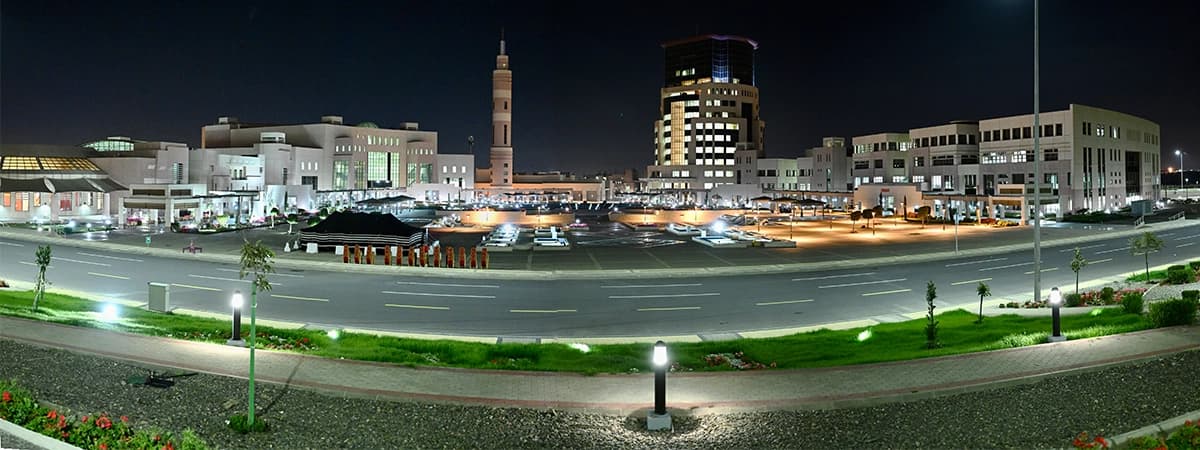King Khalid University
News & Events

The University participates in the first edition guide of Gulf educational institutions.
King Khalid University-Media Center
King Khalid University (KKU) participated in the first edition of the Gulf Educational institutions guide, which aims at raising awareness of leaders, academics, students, and their parents in the Gulf cooperation Council (GCC) countries with the most important educational institutions and academic programs offered. Another of its aim is to introduce admission conditions. This is with the intention of achieving academic and cognitive integration between educational institutions of gulf countries.
This sponsorship and participation is one of the University's continuous lead in the Kingdom of Saudi Arabia, as well as in the Gulf Cooperation Council countries, as one of the largest academic knowledge entities. The manual guide allocated a unique position for the University; it made the name of KKU headlines among Arab and world interface to the manual cover. Furthermore, the opening pages showed the outstanding international prestigious place occupied by the university through presenting the university internationally, and an Arabian advanced rank, according to the QS, Webometrics and US News organizations.
The guide also provides distinct opportunities for cooperation and integration between universities and the programs of a similar nature. Moreover, it raises the level of competitiveness between universities, in which each university strives to do its best, especially after the achievement of excellence rankings by some Arab universities among the international and Arab universities. This achievement is being led by King Khalid University, through QS organization's announcement that the development of performance rates in KKU exceeded all Saudi universities, and accorded it with the first place in the development of performance in the past year.
The manual guide contains 7 sections, with each section specializes and discusses one of the Gulf countries, in addition to the international section, which includes a list of major international universities with reputation of scientific outstanding; in order to allow our children the best educational opportunities. It also provides an introduction file for King Khalid University, in which is included its vision, mission, goals, values, as well as selective images about the university and its ongoing projects. On top of the University projects is The New University City Al Fara. In addition to that, the informative book addresses higher education institutions, and their successive challenges and sequential changes. It also describes the image of future universities, how they should be stressing on that path of development of the Gulf universities as their performance has become an urgent need for the university to stay.
On his part, the Vice President for Development and Quality, Dr. Ahmed Aljubaili explained in his article published in the guide entitled: "Recent trends in higher education institutions": the comparison of key elements of the educational process in the three generations of education. He stressed on the need to move to the new generation, and the need for performance development, and the role of teacher, and preparing him/her in order to be qualified to practice the new function (role). As it is obvious lately, the features of the new generation of education do impose themselves on actuality and not only on verbal production, and these have already been applied in many universities.
Continuing, His Excellency Dr. Aljubaili gave contemporary examples of universities that began to implement the new style, including the Korea Advanced Institute of Science and Technology (KAIST) in South Korea. In KAIST, they applied what he called the technology of inverted chapter; where teaching and learning start from the student, not fromthe teacher, explaining: 1- success rates achieved, and 2 - the expansion range of application by increasing in the number of chapters participated in it.
Ceaselessly, Dr. Al Jubaili also provided the experience of the University of Western Cape, in Zaire. He reviewed the emergence of new learning communities, and the openness of knowledge borders. Previously the knowledge was confined to limits of the temporal and spatial study hall; now it has extended its scope to include students and professors of the same university, and other universities from the same country, as well as universities from other countries. He explained the increase of open access in the number of scientific journals, with free access to scientific books and its relation to assessment of universities. The article concluded a series of actions that facilitate the transmission of any educational institution from traditional educational style to a modern one.
It is worth mentioning that, a website for the guide has been created (backend.gccguides.com); with the participation of the university in the homepage. Since the release of the website, the number of visits is more than 80 thousand. The website is considered the most prominent characteristic of the guide. In which: it saves time for the students in the search for the university or the country desired by the student, programs provided by each educational institution with their advantages, and the conditions of admission and the dates of application submission.
Now, the website is working on the preparation of the guide electronically in the form of an electronic issue, CD-ROMs, and applications for smartphones of all kinds. It will be published on the University website, and other universities' sites, and those of other educational institutions at the level of the Gulf Cooperation Council (GCC).
